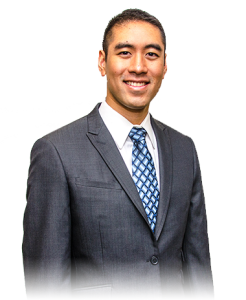Interventional Pain Management Specialist Dr. Kaliq Chang with Atlantic Spine Center Offers Tips to Prevent Life from Becoming Pain in Neck.
WEST ORANGE, N.J. (PRWEB) June 05, 2018
June 2018 – Stand up straight! Sit straight, shoulders back! When life becomes a pain in the neck, it proves Mom was right after all. “Poor posture is a leading culprit for musculoskeletal pain because it can cause strained neck muscles, tendons and ligaments,” says Kaliq Chang, MD, an interventional pain management specialist at the New Jersey-based Atlantic Spine Center.
He blames long hours hunched over computer keyboards at work and excessive mobile phone use, which keeps a person’s head down, putting more force on the neck, as common reasons why neck pain is affecting millions of Americans.
A study published in 2017 in the Brazilian Journal of Physical Therapy indicates the prevalence of neck pain in adults ranges from nearly 17 percent to 75 percent throughout the world and is “remarkably associated” with specific types of individuals, including those who work in sitting or leaning positions. Other research has shown a higher frequency of neck pain in women.
In a December 2016 issue of the Journal of the American Medical Association, authors report that health care spending in the United States to treat neck and lower-back pain now exceeds $88 billion – third highest amount for any health condition.
“The neck is a marvelous piece of architecture,” Dr. Chang explains. “Its complex network of cervical bones, joints, musculature and connective tissue work in balance with the shoulders to support and stabilize the head, which weighs as much as a medium-sized bowling ball – about 11 pounds — and to provide movement and range of motion, enabling us to turn our head in almost any direction.
“Pushing the head forward and out of alignment for long periods of time or engaging in activities involving repetitive or forceful movement or awkward positions puts undue strain on this system and can lead to pain in the neck and shoulders,” he says.
Of course, improper posture is not the only source of neck pain. Injuries to neck muscles and soft tissue; degeneration of the cervical disks due to aging; herniation of a cervical disk, causing nerve compression; occipital bone spurs; infections and disease; and psychosocial factors like stress, depression and emotional issues can promote onset of neck pain, Dr. Chang says.
The pain can take many forms, such as a sharp, stabbing sensation; a dull ache or soreness; burning feeling; stiffness; or pain that radiates to the head or shoulders.
Most neck pain is not caused by emergent or serious medical conditions, but usually resolves on its own, with minimal or no treatment, Dr. Chang adds. “What’s important is identifying and remedying the risk factors in one’s life that are potential sources of the neck pain to prevent it from becoming chronic. Chronic pain is a disabler, negatively impacting quality of life.”
Risk factors can include sleeping habits, lifting heavy objects improperly, obesity, smoking, weak neck muscles due to lack of exercise, even an outdated eyeglass prescription if a person must move the head far forward or to the side to see clearly.
Dr. Chang recommends that patients contact a physician immediately if neck pain:
- Persists for more than a couple weeks and fails to respond to home remedies, such as ice to reduce swelling, moist heat to aid healing and over-the-counter pain medications.
- Occurs suddenly, following injury.
- Causes tingling or numbness in arms or legs.
- Is accompanied by fever, chills, nausea, or dizziness – symptoms that could signal an infection, a disease like meningitis or other serious disorder.
“Non-surgical approaches are always a first option for relieving neck pain,” Dr. Chang says. “Physicians might recommend light physical therapy and neck exercises, medication, and epidural steroid injections if the problem is related to the cervical spine.”
Some studies even suggest yoga, meditation and Tai Chi help relieve neck pain.
If all else fails, surgery, such as artificial disk replacement for a herniated cervical disk, or cervical decompression for treatment of cervical spinal stenosis, may prove necessary, Dr. Chang states.
Meanwhile, best defense for neck pain is prevention. Dr. Chang advises:
- Make lifestyle changes: stop smoking, lose weight, exercise regularly.
- Don’t sit for extended periods. Take breaks.
- Move the computer screen to eye level.
- Sleep on one pillow – not two or three – and sleep on your back, if possible.
- Bend knees and keep back straight when lifting.
- Stop constantly checking your mobile phone.
Atlantic Spine Center is a nationally recognized leader for endoscopic spine surgery with several locations in NJ and NYC. http://www.atlanticspinecenter.com, http://www.atlanticspinecenter.nyc
Kaliq Chang, MD, is an interventional pain management specialist board-certified in anesthesiology at Atlantic Spine Center.

